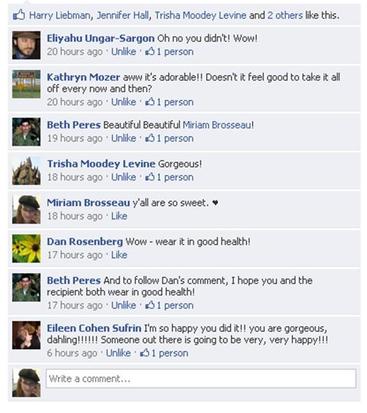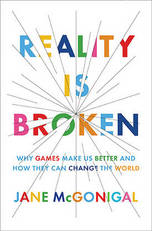The Tower of Babel gets a bad rap. Here's an offensive-ish video illustrating just that fact...
Humanity gangs up, decides to take over heaven, building this massive structure together, which is eventually thwarted by the divine beings who get freaked out about humanity's power.
Blecch.
As Social Media Coalitions Manager at the Jewish Education Project (wow, segue), I've been thinking a lot about collaboration and what it means to build something together. Whereas a model like, say, building the mishkan is a pleasant reference, the Tower of Babel invokes a sense of caution, even dread. Don't dream too big! it warns.
I believe, though, that there is another message we can glean from this text; one that doesn't stop you in your tracks and shout at you that you're not a god. Quite the contrary.
In
"Reality is Broken" (seriously, just read it), my new hero
Jane McGonigal talks about the feeling we get when we're immersed in what she calls "epic environments." "An epic environment," she writes, "is a space that, by virtue of its extreme scale, provokes a profound sense of awe and wonder." Built epic environments, those we know have been crafted by human hands, inspire in us a particular sense of awe - "it makes us feel capable of much bigger things, together." The Grand Canyon is a good example of a natural epic environment, while the Great Wall of China is a built one.
McGonigal talks about the first epic environments, places constructed thousands of years ago for, it seems, the express purpose of inspiring a sense of awe. The
Gobekli Tepe, for instance, which predated Stonehenge by thousands of years, was among humanity's first 'cathedral' on a hill. One would think that these structures were the products of advanced societies, cultures that had learned to cooperate on a huge scales. Surprisingly, though, evidence suggests that the opposite may be true. "The stone cathedrals...actually inspired and enabled human society to become dramatically more cooperative, completely reinventing civilization as it once existed," McGonigal explains. Whoa. Some mind-flip, huh?
Now let's return to the infamous Tower of Babel, viewing it with this new information in mind.
No wait, let's back up a bit. Let's start with Noah and the Ark.
Arguably the Ark was an epic environment, yeah? Massive in scale, housing two of every species on the entire planet, some kind of weird sewage system... It must have inspired the sense of awe we're talking about.
But the Ark was a one-man kind of deal. The rabbis often fault Noah (who was "righteous in his time"... but probably wouldn't have cut it were he stacked up next to, say, Abraham) for not involving others. Unlike Abraham, who argued passionately on behalf of a couple of sinful cities, Noah got the marching orders and set to work. No questions asked. No one else involved.
The Tower of Babel, on the other hand, was a grand-scale collaborative effort. All of humanty gathers to achieve one goal - to build an epic environment. So epic, in fact, that it would reach to the heavens.
The divine beings are threatened by this move, and resolve to "confound their speech." Humanity is then spread over the entirety of the earth, effectively preventing a breech of the upper world.
The text portrays this scene pretty negatively. Man's hubris, divine intervention, and a punishment that throws us all that much farther out of the Garden of Eden. But what if we read it another way? What if we looked at the positive results of this story?
Building the Tower of Babel taught us to be cooperative. This project forced humanity to test the limits of its power. It certainly invoked a sense of awe in the builders and onlookers - the kind of awe McGonigal writes about. The kind that makes bigger things seem doable. And perhaps the divine punishment is not that at all. Being scattered, developing new languages... These are new adventures, wider horizons, opportunities to build complex societies in vastly different territories. And none of this would have been possible if we hadn't built the Tower in the first place.
So maybe this biblical tale of the second built epic environment wasn't so bad as it seems.
If you buy into my optimistic reading at all, then, dear readers, we have a new task at hand. The divine beings thought they were preventing further collaboration by spreading us out and tangling our tongues. How about we prove them wrong, eh?





 RSS Feed
RSS Feed